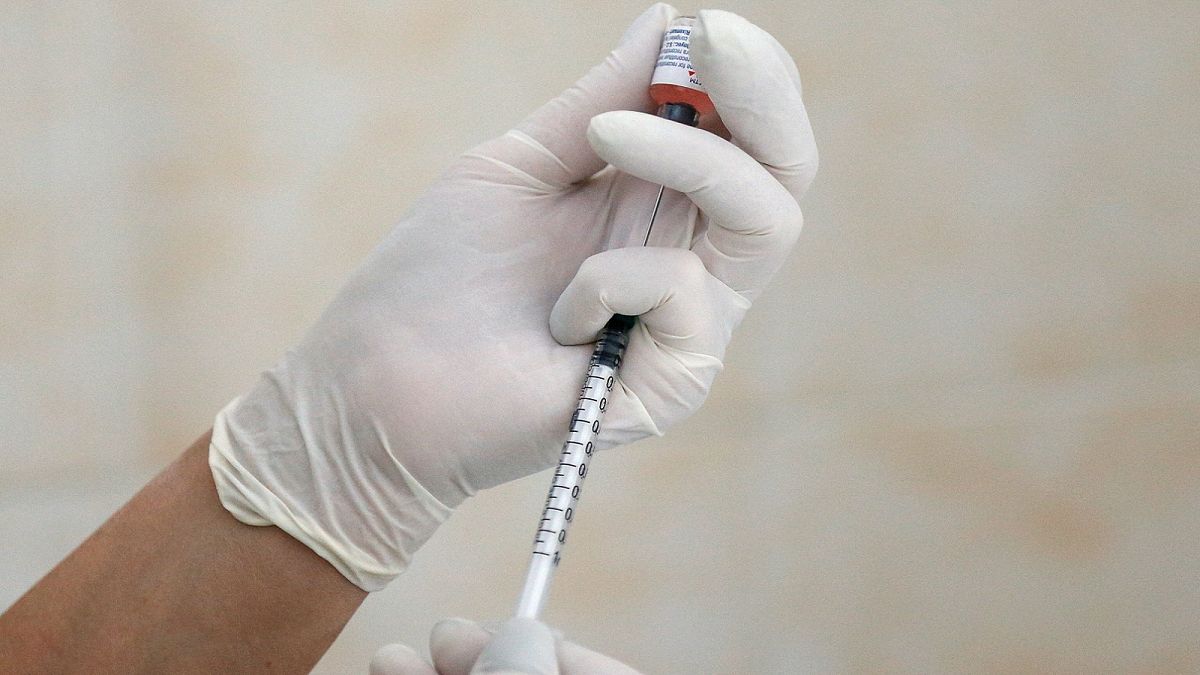New research by the Economist Intelligence Unit has identified severe weaknesses in countries’ abilities to prevent, detect and respond to significant disease outbreaks.
As the World Health Organization (WHO) confirms outbreaks of measles across 187 countries, potentially indicating the early warning signs of a new global pandemic, the truth is that neither the European nor the global health system are ready for another viral or bacterial outbreak.
Despite welcome progress, we are still unsafe. New research by the Economist Intelligence Unit (EIU), as part of a joint project launched by the Nuclear Threat Initiative (NTI) and the Johns Hopkins Center for Health Security (CHS), has, for instance, identified severe weaknesses in countries’ abilities to prevent, detect and respond to significant disease outbreaks.
The EIU’s new Global Security Index concludes that all countries - at all income levels - have major gaps in their capabilities, and simply aren’t sufficiently investing in biological preparedness. Most worryingly, the research found that many countries in Europe – including some of the wealthiest in the European Union – have been ranked with lower levels of preparedness similar to that of much poorer, less developed countries.
This could have devastating consequences. Earlier this year, a landmark UN report warned that without significant action, drug-resistant diseases could cause 10 million deaths each year by 2050, while inflicting catastrophic damage to the global economy similar to the 2008 financial crash.
With rising, denser populations, the impacts of climate change, and the increasing interconnections between people, animals and food, it is all but certain that the world will experience another epidemic. It could be similar, for instance, to the 2012 Sars outbreak in Hong Kong – which killed 299 and infected 1,755.
Such an outbreak could rapidly convert into a global pandemic, depending on the circumstances. But we can still mitigate this risk by accelerating urgent preventive action right now.
Europe cannot afford complacency. Antimicrobial resistance already causes an estimated 33,000 deaths in Europe and 700,000 deaths globally each year. It also results in €1.5 billion per year in healthcare costs and productivity losses in the EU.
Antibiotics have saved countless lives. But their excessive use among both humans and animals has fuelled a massive rise in resistant bacteria, creating an emerging crisis that medical establishments have been ill-equipped to solve.
The situation is rapidly approaching a potential tipping point. In some countries in Europe, the resistance of some pathogens now reaches over 50%, and new resistance mechanisms are emerging and spreading rapidly. The situation is especially worrying for Gram-negative bacteria, such as Klebsiella pneumoniae and Escherichia coli.
This is potentially one of the biggest threats to public health we have ever seen. Routine medical procedures could be jeopardised, and common infections could end up leading to large-scale deaths.
While the EU has led the way with its One Health initiative to head-off the scale of this potential crisis, it is still too little, too late. A recent report by the European Observatory on Health Systems and Policies concludes that: “what has been done so far does not match the recommended scale of actions.” Meanwhile, progress by EU member-states in developing national actions plans “has been inconsistent,” the report warns.
Such dithering on this matter of vital importance to public health is a grave threat to all EU citizens. Yet this would not be the first time the EU’s relationship with the urgency of science has been found wanting.
Despite robust scientific evidence on the potential health dangers of glyphosate used in Monsanto’s controversial weed killer RoundUp, the EU has been reluctant to take action – with the Green Party even blocking a proposed EU ban. At best, medical experts admit that “accurate risk assessments” are not possible given the paucity of the evidence base. Yet still we recklessly use herbicides whose risks we do not understand.
Similarly, the EU’s de facto ban on palm oil for biodiesel - justified on grounds of its role in deforestation-linked to climate change - completely ignores scientific warnings that the ban will only increase demand for other commodities, such as soy and rapeseed, driving even greater levels of deforestation. As a result, pressure to create more sustainable palm oil and other vegetable oils (the only real solution, according to leading scientists), has been replaced with self-defeating boycotts that will only worsen the problem.
These cases illustrate that, as populists are coming to the fore, the EU is at grave risk of scientific warning being undermined thanks to narrow lobby groups and interests. The EU cannot allow the same complacency to impair its approach to disease.
If it does, the potential impacts could be imminent and overwhelming. Yet the problem is not yet intractable. We urgently need greater research and development investments in new antimicrobial therapies, diagnostics and vaccines. We need to continue to clampdown on the excessive misuse of antibiotics in both humans and animals, and we need far stronger standards to prevent and control infections.
We also need to recognise that EU member-states’ crisis response protocols are severely lacking – if a crisis does break out, most EU countries are not ready for it, and this has to change urgently.
Heading off this potential crisis is just the beginning. Over the last decades, immense progress has been made in combating the spread of infectious diseases. We have the tools and scientific know-how to succeed, and the EU has the opportunity to spearhead this victory. There is no time to waste.
- Dr Ricardo Baptista Leite MD, MP, PhD(c) is founding president of Unite, the global network of parliamentarians fighting to end infectious disease. He is also a Member of the Portuguese National Parliament.
____________
Are you a recognised expert in your field? At Euronews, we believe all views matter. Contact us at view@euronews.com to send pitches or submissions and be part of the conversation.
